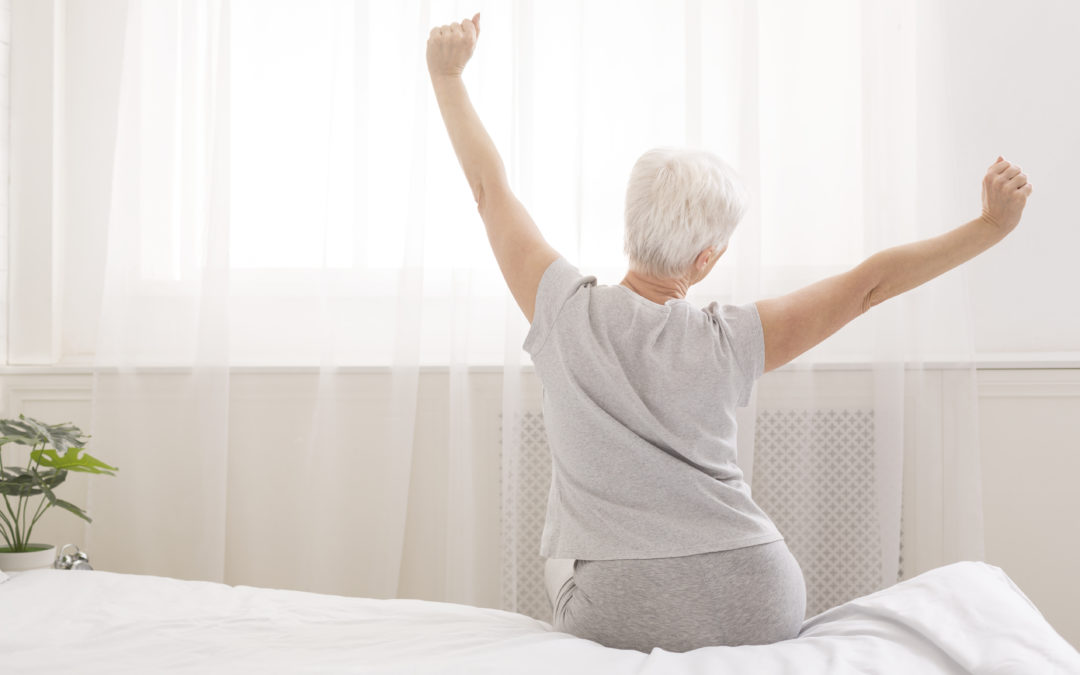As we age, our sleep patterns change. Whereas in our youth we could stay up all night and still feel chipper the next day, most of us find that as we get older, we need more and better sleep to function at our best. Unfortunately, getting a good night's sleep can be easier said than done. Between aches and pains, medications that cause drowsiness, hot flashes, and stress, many seniors find it difficult to get the shut-eye they need. Here are four tips to help you get the best sleep possible.
Establish a regular sleep schedule
One of the best things you can do for your sleep health is to establish a regular sleep schedule—and stick to it as much as possible. Going to bed at the same time each night and getting up at the same time each morning will help train your body to expect sleep at a certain time and make it easier for you to fall asleep—and stay asleep—through the night.
Create a restful environment
To promote better sleep, create a bedroom environment that is dark, quiet, cool, and comfortable. Make sure your bed is comfortable and supportive and use a pillow and blankets to achieve the perfect level of coziness. Consider investing in blackout curtains or an eye mask to block out any unwanted light and use a white noise machine or earplugs to muffle any disruptive sounds. By creating an oasis of calm, you'll be sending a clear message to your body that it's time to relax and drift off to dreamland.
Avoid caffeine close to bedtime
While that late-night cup of coffee may seem like a good idea at the time, caffeine is one of the worst enemies of good sleep. Caffeine is a stimulant that can keep you feeling awake and alert long after you've finished your cup, so it's best to avoid caffeine—in any form—for at least six hours before bedtime. If you're struggling with insomnia, steer clear of caffeine entirely.
Keep screen time to a minimum
We know it can be tempting to scroll through social media or watch TV in bed before falling asleep, but too much screen time close to bedtime can make it harder for you to drift off. The blue light emitted by screens can mimic daylight and trick your brain into thinking it's still daytime, which makes it harder to fall asleep. If you must use screens before bedtime, try using them with blue light filters or software that limits exposure to blue light close to bedtime.
Getting enough quality sleep is essential for seniors' physical and mental health. By following these four tips—establishing a regular sleep schedule; creating a restful environment; avoiding caffeine close to bedtime; and keeping screen time to a minimum—you can help yourself get the best sleep possible and wake up feeling refreshed and rejuvenated. Sweet dreams!

